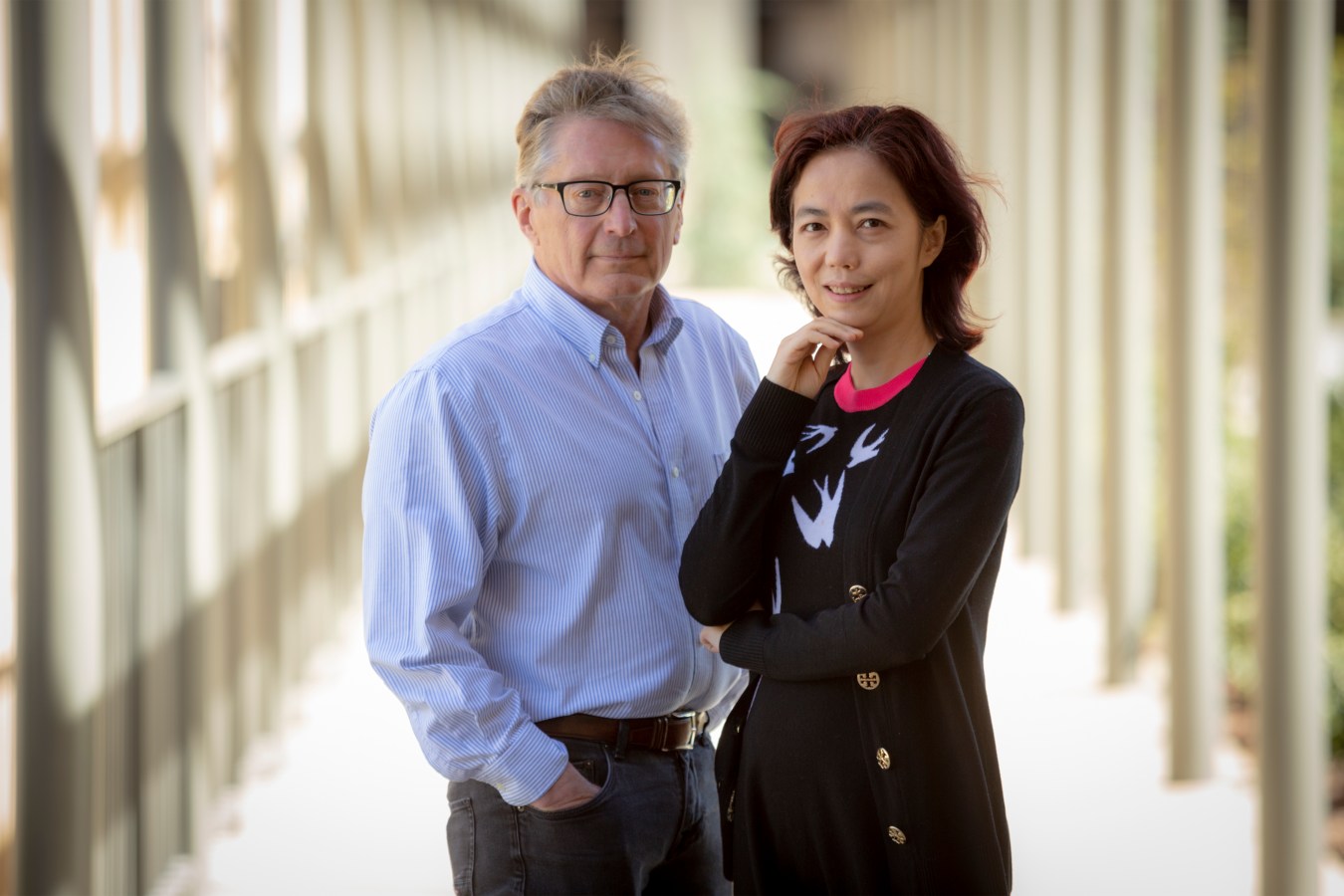Our sunburnt nation ranks just 30th out of 36 nations in the institution’s AI economic competitiveness index. Australia is 16th globally in overall AI Vibrancy.

Stanford’s Global AI Vibrancy Tool measures 36 countries on the strength of their AI ecosystems using indicators such as AI journal publications, total AI private investment, AI legislation passed, and foundation model datasets.
According to the 2024 AI Vibrancy tool – derived from 2023 data – Australia is ranked just 30th across the globe in AI economic competitiveness, beaten by Turkey, Mexico, Malaysia, and Estonia.
The research also reveals that Australia’s overall standing in AI Vibrancy was 16th out of 36 countries last year, putting it in the middle third of all nations. One factor contributing to that score was Australia’s low per-capita research and development investment in 2023, compared to other nations. Low scores in AI education, infrastructure, and public opinion also contributed.
Responsible AI is the dimension that Australia scores highest in. We placed 7th out of 36 countries on that measure, a decline from 2022 rankings when the nation was ranked 6th.
“AI has increased as a topic of national interest, and correspondingly narratives about which countries lead in AI have become more prominent than ever,” says Nestor Maslej, a project manager of the AI Index.
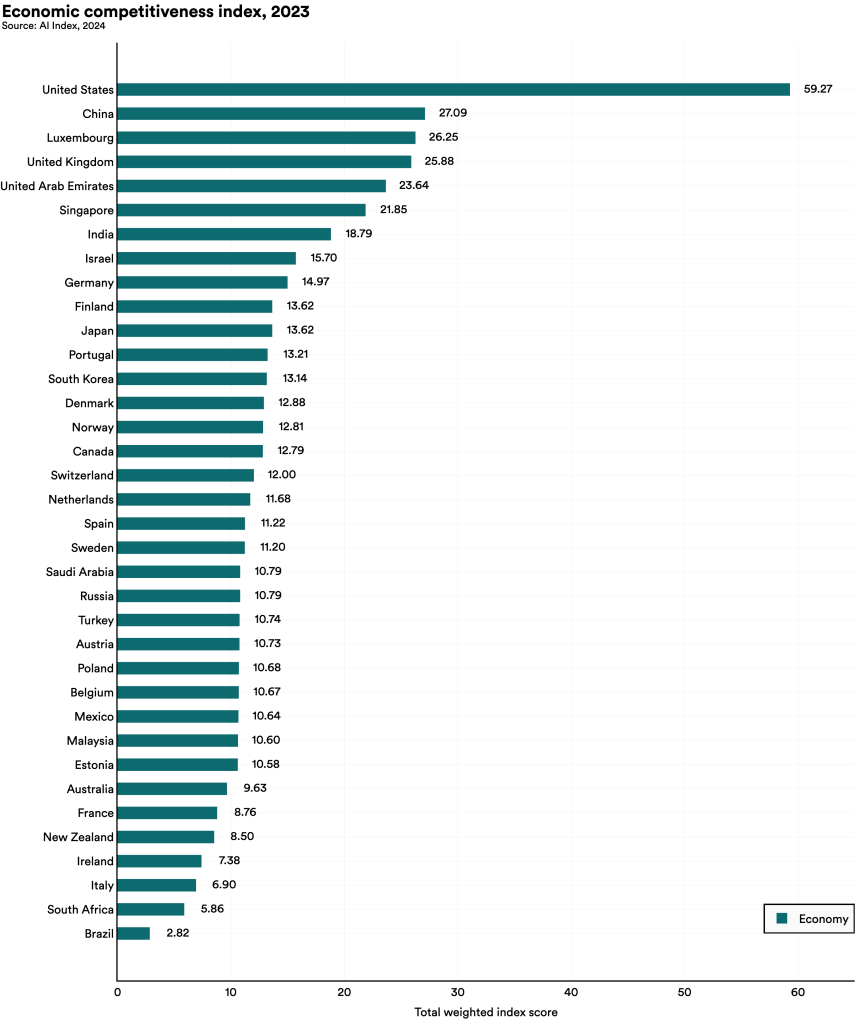
The Vibrancy research from the Stanford Institute for Human-Centred AI (HAI) categorises countries by eight dimensions: research and development; responsible AI; economy; education; diversity; policy and governance; public opinion; and infrastructure.
Australia’s strongest dimension, according to the Vibrancy tool, is policy and governance. When it comes to absolute values for National AI Strategy Presence (not a per capita rating) we are ranked first in the world. The new tool also reveals that globally, Australia has the third-highest number of absolute value AI mentions in legislative proceedings. On the measure of AI Legislation Passed, however, Australia is in the lowest position possible ranking 36 of 36.
Still, our ranking in policy and governance have improved significantly over the last 12 months, moving from the middle of the pack (15th) into 8th position globally.
Investing in the AI future
A report from IDC and Intel released in May states that Australian spending on AI systems will grow to over $8.3 billion annually by 2027, a CAGR of 25.4% from the year 2023. The Commonwealth Science and Industrial Research (CSIRO) projects the Australian AI market will be worth US$315 billion by 2028.
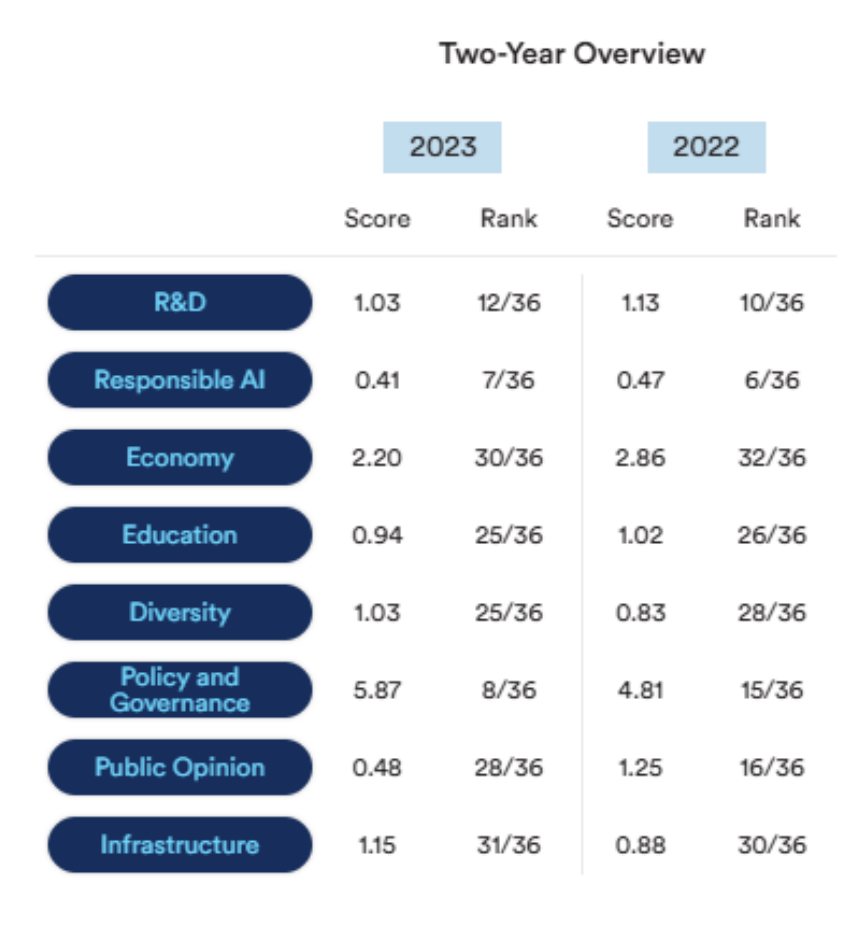
The federal government’s spend on AI is also set to increase. An additional $100 million has been pledged toward quantum and AI technologies, adding to the $1 billion promised previously.
Australian universities are making progress too. Fifty-two thousand AI-related research papers have been produced by Australian academics since 2020.
AI opportunities in Australia
The Stanford research comes in the same month that Microsoft, a lead investor in OpenAI and its game-changing LLM ChatGPT, released an Australia-specific report highlighting the sectors in which we can excel.
Wendell Keuneman, a Partner at Australian VC firm Tidal Ventures, says it is not only data centres that can be an area of growth.
“This report reaffirms that Australia has a real opportunity to drive growth and build globally relevant AI businesses – particularly through applications, data and infrastructure”, says Keuneman.
Opportunities for Aus businesses across the AI tech stack
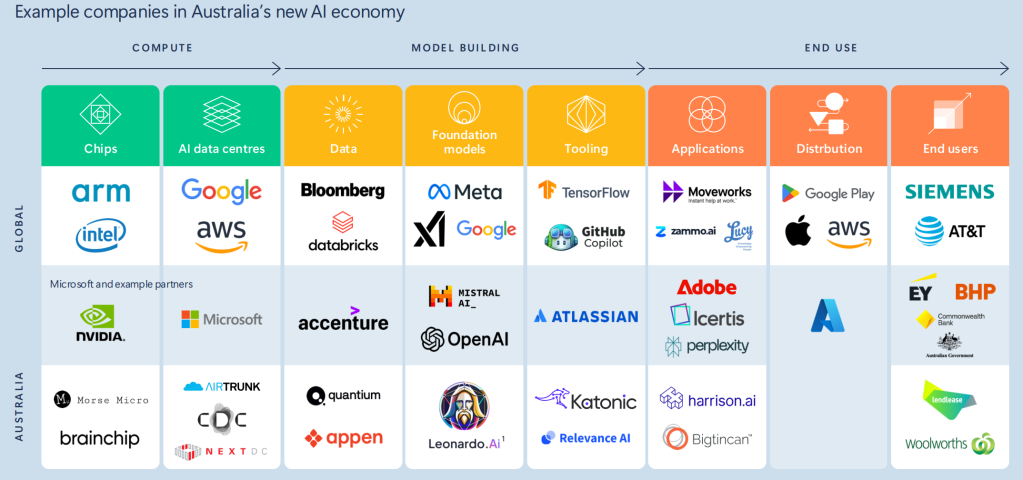
The value of a strong AI economy is estimated by Microsoft to contribute an additional $115 billion to the Australian economy each year through increased productivity and innovation. Healthcare and financial services are noted as specific industries that will benefit from adoption of generative AI.
Damian Kassabgi, CEO of the Tech Council of Australia, says that embracing AI is essential for our nation.
“The insights from this report reveal the critical role AI can play in enhancing Australia’s economic and digital landscape. We are poised to lead, provided we continue to innovate and scale up our AI capabilities strategically.”
AI Vibrancy Top 10
The countries that excel in Stanford’s HAI Vibrancy research have specific expertise in the following areas:
1. United States
The U.S. leads the ranking by a significant margin and excels in the research and development (R&D) and in the AI economy pillars. The U.S. consistently produces the most notable AI machine learning models, attracts the highest levels of private AI investment, and leads in publishing responsible AI research.
2. China
China demonstrates substantial strengths in the R&D, economy, and infrastructure pillars. China’s focus on developing cutting-edge AI technologies and increasing its R&D investments has positioned it as a major AI powerhouse.

3. U.K.
The U.K. demonstrates particular strength in the R&D, education, and policy and governance pillars.
4. India
India has strong performance in R&D and recent improvements in the economy pillar.
5. The United Arab Emirates
The U.A.E. scores highly on the economy pillar.
6. France
France ranks sixth and shows strength in the policy and governance, education, and infrastructure pillars.
7. South Korea
South Korea ranks seventh, scoring highly in the policy and governance, infrastructure, and public opinion pillars.
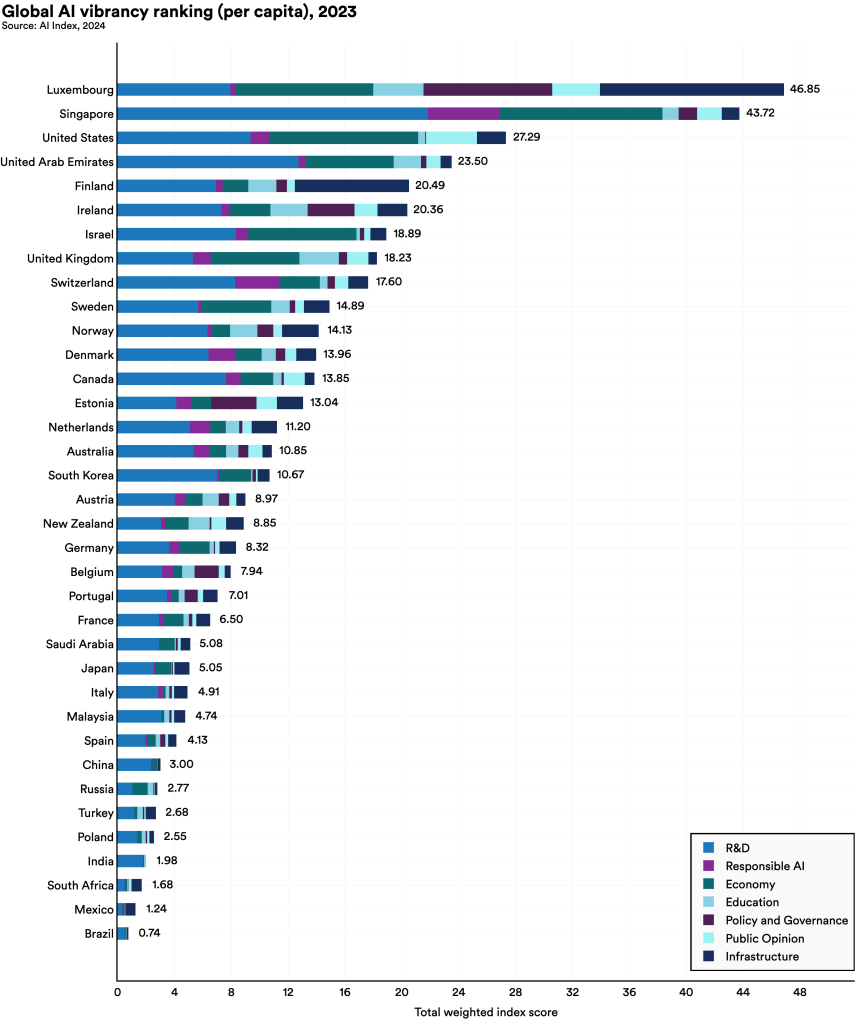
8. Germany
Germany ranks eight, showing strength in the R&D, responsible AI, and education pillars.
9. Japan
Japan demonstrates strong performance in the infrastructure, R&D, and economy pillars.
10. Singapore
Singapore shows strength in the economy, diversity, and responsible AI pillars.
Look back on the week that was with hand-picked articles from Australia and around the world. Sign up to the Forbes Australia newsletter here or become a member here.
